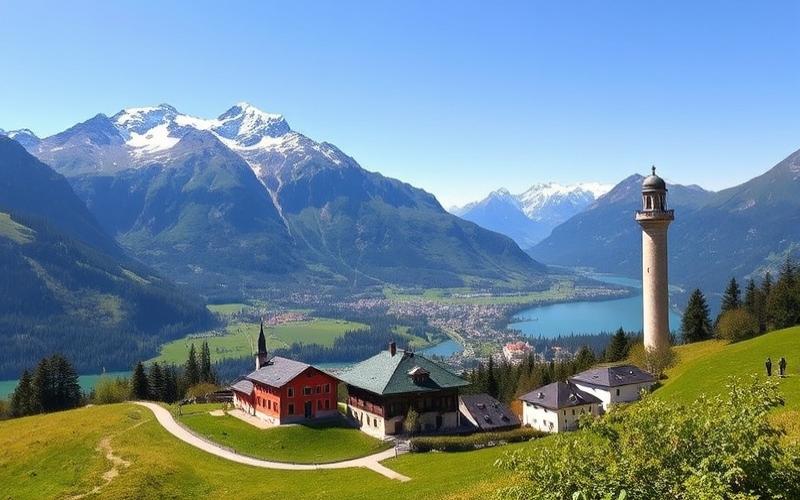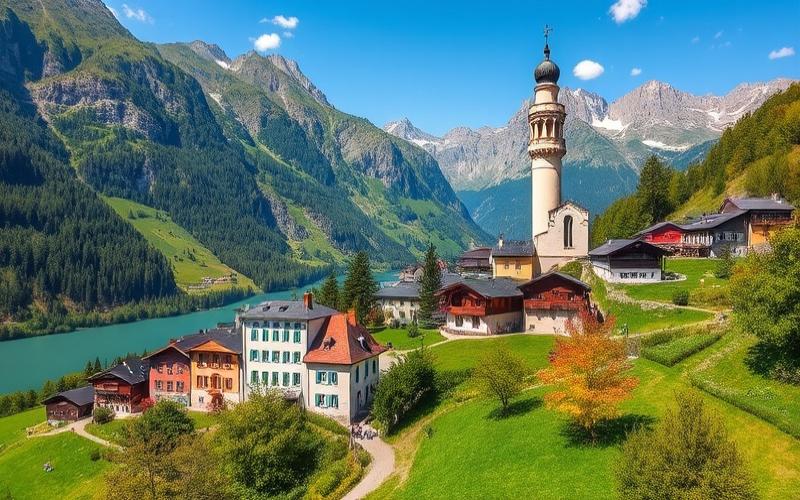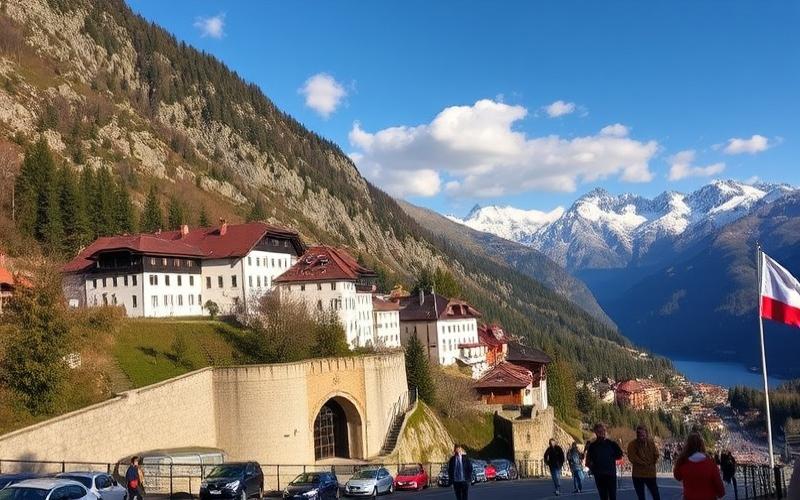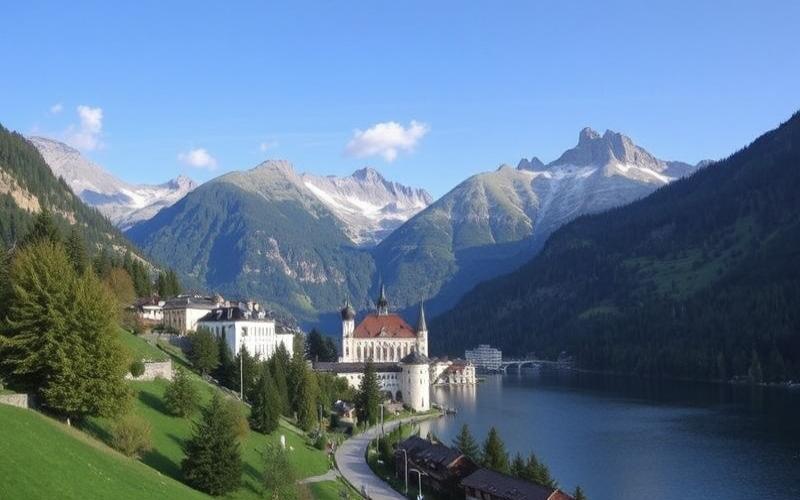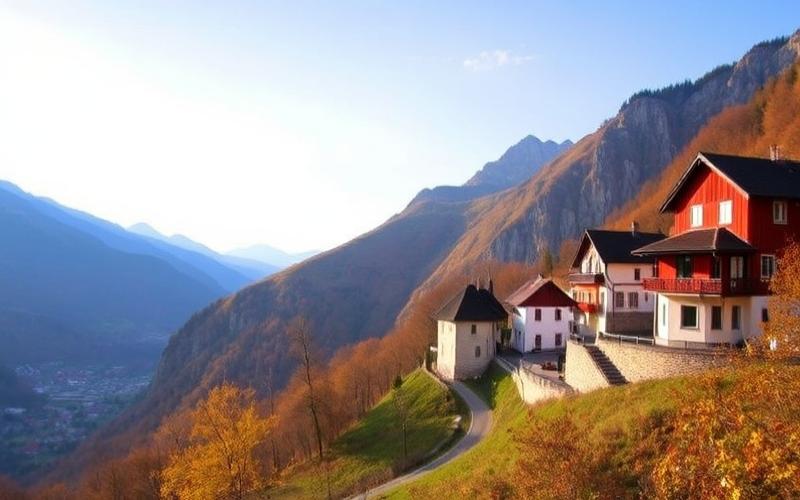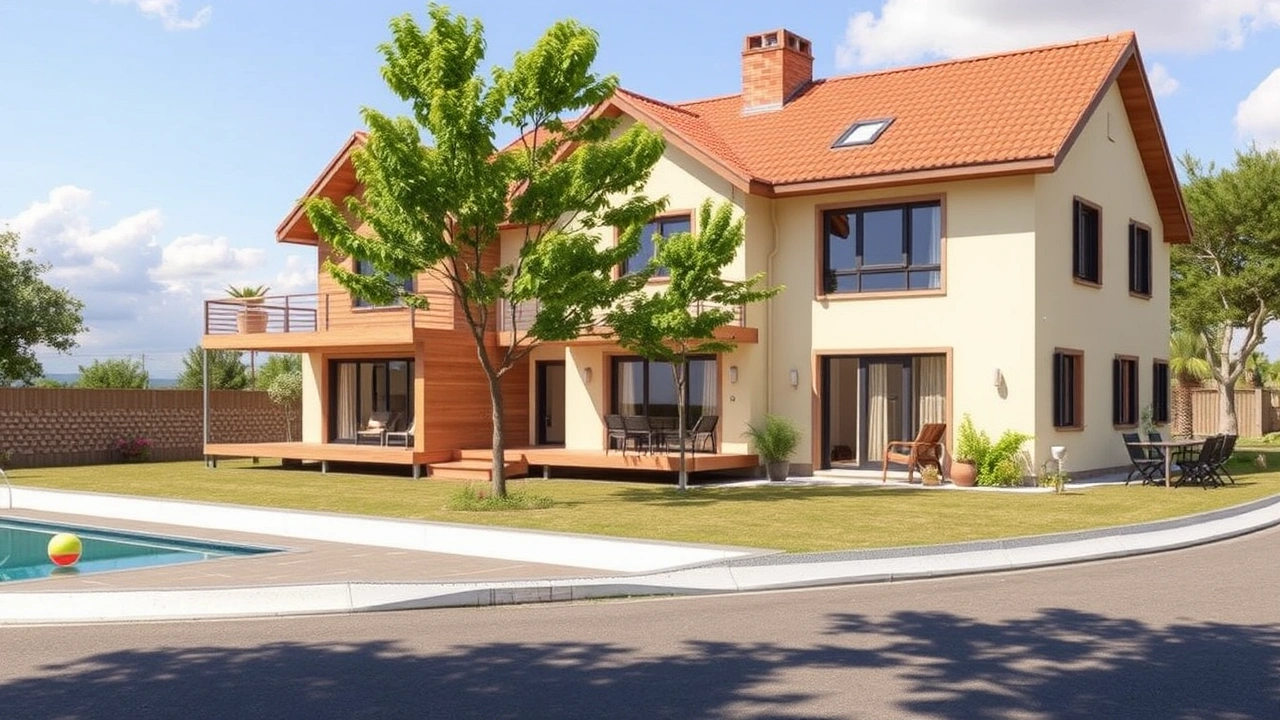
 Published on and written by Cyril Jarnias
Published on and written by Cyril Jarnias
Nestled in the Heart of Europe, an Underrated Destination
The small principality of Liechtenstein is attracting more and more expatriates seeking new opportunities and an exceptional living environment. This tiny country, though often overlooked, offers undeniable advantages for those looking to settle there.
Liechtenstein’s Strengths
Among the main advantages:
- An attractive tax system that’s particularly advantageous
- A remarkable quality of life thanks to its preserved nature
- Surprising economic dynamism for such a small territory
Challenges to Consider
Nevertheless, living in this Alpine state presents certain disadvantages:
- Limited housing options due to the country’s small size
- Cultural differences that may be surprising
- A restricted job market in certain sectors
Good to Know:
Liechtenstein, though a microstate, has one of the highest GDP per capita in the world thanks to its developed financial sector and advanced manufacturing industry.
Through this article, we’ll take a closer look at the various facets of expatriation in this unique country, to help you determine if Liechtenstein is the ideal destination for your new life abroad.
Economic Benefits of Expatriation in Liechtenstein
Liechtenstein stands out for its highly attractive taxation, both for individuals and businesses. The country applies particularly low income tax rates: for individuals, the rate is progressive and capped at approximately 22.4%. For corporations, the flat rate on taxable net profit is set at 12.5%, with numerous possible exemptions (dividends, capital gains on holdings), making it one of the lowest in Europe.
The Principality of Liechtenstein combines low tax rates, clear legal provisions, and strong international interconnectedness. Whether managing wealth, starting a business, or benefiting from tax advantages, Liechtenstein is a privileged location for individuals and companies thinking long-term.
Tax benefits include:
- Possibility to avoid double taxation through numerous international agreements.
- A simple legal system allowing for quick and efficient establishment of businesses or wealth structures.
- Low annual minimum tax (CHF 1,800/year) for most companies.
- Frequent exemptions on certain income (dividends received by parent companies).
The following table summarizes applicable taxation:
| Type | Maximum Rate | Specifics |
|---|---|---|
| Individual Income Tax | ~22.4% | Progressive by municipality |
| Corporate Tax | 12.5% | Dividends & capital gains often exempt |
| Annual Corporate Minimum | CHF 1,800 | Applies except for exceptions |
The country’s economic stability relies particularly on its prudent monetary policy, near absence of public debt, and its positioning as an internationally recognized financial center. The regulatory framework is designed to be business-friendly while remaining compliant with European transparency standards.
For expatriates looking to invest or start businesses:
- Quick administrative procedures
- High legal security
- Facilitated access to the European market through agreements with the European Economic Area
Regarding employment:
- Accessible job market with low unemployment rate
- High level of professional qualification among the workforce
- Welcoming policy toward cross-border workers
Geographical advantages are major: located between Switzerland and Austria, also close to southern Germany, Liechtenstein provides direct access to major European economic centers.
Other key factors making this country attractive:
- High standard of living
- Modern infrastructure (efficient transportation, high-performance internet network)
- High-end social services: well-funded universal healthcare and renowned multilingual education
The combination of low taxation, remarkable political-economic stability, and overall quality of life thus places Liechtenstein among the preferred European destinations for international investors and entrepreneurial expatriates alike.
Good to Know:
Liechtenstein attracts with its advantageous taxation, featuring competitive income tax rates for residents and attractive tax benefits that make it a haven for entrepreneurs and investors. The country enjoys exceptional economic stability and a regulatory framework conducive to business development, offering a safe environment for creating or expanding companies. Expatriates also benefit from easy access to the job market, enriched by proximity to major economic centers like Switzerland and Germany. Add to that a high standard of living, modern infrastructure, and quality social services, and it becomes clear why Liechtenstein is a dream destination for those wanting to combine professional life and personal comfort.
Cultural Challenges to Overcome in Liechtenstein
Language Differences
- Official language: Standard German is the language of administration, education, and media.
- Alemannic dialects: In daily life, residents primarily use local Alemannic dialects (“Liechtensteiner”), similar to Swiss German and Alsatian. In Triesenberg, the Walser dialect differs even more.
- Cultural subtleties:
- Dialect nuances can complicate integration for expatriates who only master Standard German.
- Regular practice of the local language is essential for proper professional and social integration.
| Linguistic Aspect | Situation in Liechtenstein |
|---|---|
| Official Language | Standard German |
| Daily Languages | Alemannic dialects (Liechtensteiner) |
| Local Variations | Walser in Triesenberg |
| Other Spoken Languages | English, French, Italian (taught in school) |
Work Culture and Professional Expectations
- Punctuality and rigor: Punctuality is considered an essential sign of respect. Schedules are strictly adhered to in professional settings.
- Hierarchy: Respect for hierarchical procedures remains important. Everyone is expected to know their place within the professional structure.
Key workplace points:
- Arrive early or on time for appointments
- Prepare meetings carefully
- Professional attitude expected from first contact
Local Traditions and Influence on Daily Life
Traditions play a structuring role in society:
- Religious holidays marked by strong community participation
- Seasonal celebrations anchored in the local calendar
- Importance of sports or music associations that shape social life
These traditions create cohesion but can accentuate feelings of exclusion for those not initiated into them.
Potential Culture Shocks for Expatriates
The common use of dialect may surprise those coming from a classical German-speaking or international environment.
Other frequent examples:
- Initial difficulty decoding certain cultural unspoken rules
- Impression of some reserve during initial social contacts
Social Integration and Reception of Foreigners
- The local social circle can sometimes be difficult to access without pre-existing connections or active involvement in association activities.
- However, authorities actively encourage foreigners to learn German to facilitate their social and professional integration.
Despite increasing openness linked to globalization, there remains strong attachment to local habits; this can give a temporary impression of exclusivity or even indifference toward those from elsewhere.
Attitudes toward cultural diversity:
| Attitude | Frequency/Importance |
|---|---|
| Declared Openness | Moderate |
| Pragmatism | High (especially in business) |
| Initial Reserve | Common |
Social and Family Relationships
The traditional family model remains predominant:
- Nuclear families with strong intergenerational solidarity
- Valued private life; personal invitations rare during initial periods
For expatriates:
- It can be difficult to quickly establish deep friendships
- Integrating certain family circles requires patience – often through children attending school together or shared extracurricular activities
Good to Know:
In Liechtenstein, expatriates must navigate unique cultural challenges, particularly linguistically, with Standard German as the official language and the richness of Alemannic dialects that can make local interactions complex. Work culture demands strict respect for schedules and punctuality considered reflective of professional reliability; deviations may be poorly perceived. Local traditions, including religious festivities and seasonal events, are strongly rooted and structure the rhythm of daily life, potentially unsettling newcomers unfamiliar with these customs. Social integration can be a delicate journey for foreigners, as while Liechtenstein is generally welcoming, cultural diversity isn’t omnipresent and may lead to uncomfortable moments for expatriates whose traditions differ. Furthermore, social and family relationships tend to be more formal, and expatriates must often navigate carefully to understand these nuances to fully integrate and avoid misunderstandings.
Personal Impact of Expatriate Life in Liechtenstein
The living environment in Liechtenstein is described by expatriates as exceptionally peaceful, secure, and conducive to a good quality of life. The country attracts with its spectacular nature – green valleys, majestic mountains – and its modern infrastructure that facilitates daily mobility. Low crime rates are also a strong point highlighted by those who settle there.
Main Living Environment Advantages for Expatriates:
- Constant sense of security
- Preserved natural environment
- Efficient public services
- Tight-knit and welcoming local community
Testimonials on Cultural and Linguistic Adaptation:
“Communities are very close here; it takes time to expand your circle of friends, but the discretion of the residents suits me perfectly… you’ll need to prove yourself to integrate!”
Integration can represent a major challenge due to:
- The small number of inhabitants (approximately 40,000)
- The predominance of local Germanic, an official language rarely spoken elsewhere, which complicates daily communication if one doesn’t master German.
- Strong attachment to local traditions that can be difficult to grasp.
| Challenges Encountered | Impact on Daily Life |
|---|---|
| Language Barrier | Limits social and professional exchanges |
| Country’s Small Size | Difficulty finding diverse social circles |
| Weight of Local Customs | Need for significant adaptation |
Effects on Emotional and Mental Well-being:
New arrivals may experience:
- Initial feelings of isolation or cultural distance
- Culture shock related to different social norms (expectation of discretion, strict respect for local habits)
However, several testimonials also mention a notable improvement in their quality of life, thanks to the ambient tranquility and easy access to nature.
Social Life:
Positive Points:
- Ease of raising a family in a safe environment
- Possible participation in numerous local festivals
More Difficult Points:
- Difficulty quickly forming lasting friendships outside work
- Real necessity to “actively expand your social circle”
Comparison with Country of Origin:
| Aspect | Liechtenstein | Country of Origin (examples) |
|---|---|---|
| Security | Very high | Variable |
| Welcome | Warm but reserved | More open or impersonal |
| Social Life | Limited without personal effort | Often more dynamic |
| Cultural Adaptation | Long period necessary | Faster depending on context |
Specific Daily Challenges:
- Finding employment outside specialized sectors (particularly finance) remains complicated as the market primarily favors local residents then Swiss nationals.
In this context, many recommend carefully preparing your arrival, both linguistically and culturally to promote harmonious integration. The overall experience remains marked by an alternation between enriching moments linked to the idyllic setting… and persistent challenges regarding sense of belonging.
Good to Know:
Living as an expatriate in Liechtenstein can offer a unique experience, significantly influencing personal and professional life. Many expatriates report that mastery of German, widely used in professional settings, is essential for full integration, though English is generally understood. Local culture strongly values precision and discretion, which can sometimes disorient those accustomed to more expressive environments. In terms of quality of life, Liechtenstein is often considered superior due to its security and exceptional natural setting, though adapting to the high cost of living is crucial. Socially, the country may seem isolating due to its small size, but expatriates emphasize the importance of joining local clubs or interest groups to foster a sense of belonging. This small community also often allows for forming deeper, more personalized relationships. However, some expatriates may feel pressure to maintain privacy, and adjusting to this dynamic can impact emotional well-being, requiring time to adapt to this peaceful and secure pace of life.
Disclaimer: The information provided on this website is for informational purposes only and does not constitute financial, legal, or professional advice. We encourage you to consult qualified experts before making any investment, real estate, or expatriation decisions. Although we strive to maintain up-to-date and accurate information, we do not guarantee the completeness, accuracy, or timeliness of the proposed content. As investment and expatriation involve risks, we disclaim any liability for potential losses or damages arising from the use of this site. Your use of this site confirms your acceptance of these terms and your understanding of the associated risks.



